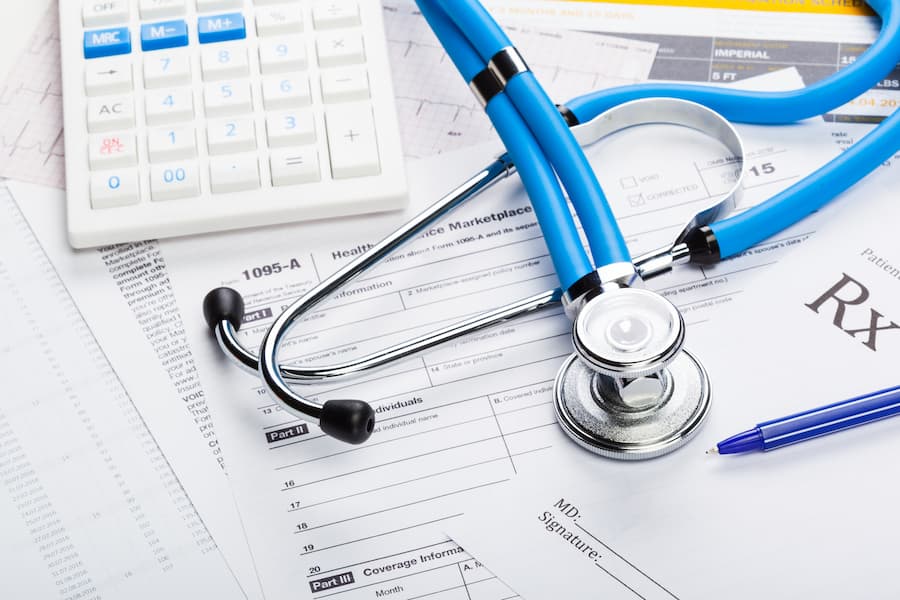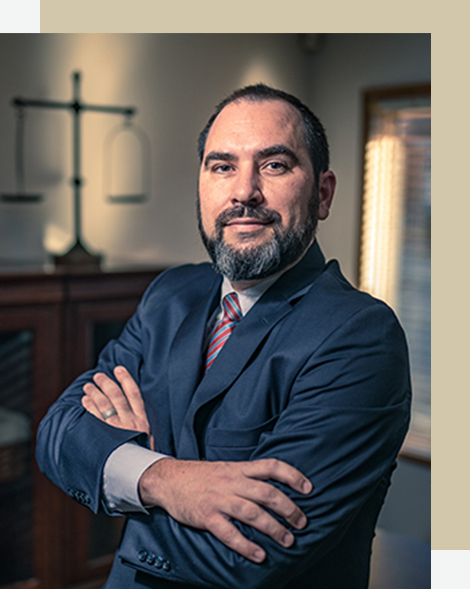Who Pays Medical Bills in a Car Accident?
After an accident, you may face a long road to physical recovery and extensive medical expenses. This poses the question, “Who pays for my medical bills?” The answer to that question depends on the details of the accident and your circumstances.
It can be stressful to worry about medical bills while focusing on healing. An Illinois car accident lawyer can provide valuable assistance, giving you much-needed peace of mind.
What Do Medical Bills Include?
After sustaining injuries in a car accident, you may incur many different types of healthcare-related expenses.
These commonly include:
- Ambulance transportation
- Hospital stays
- Surgery
- Lab tests
- Diagnostics
- Medication
- Rehabilitation
When you suffer extensive injuries that require substantial medical treatment or lengthy hospital stays, medical bills can quickly reach six figures. Some injuries can even leave victims facing long-term consequences that require medical care well into the future.
Car accidents and the resulting injuries can be traumatizing all on their own; add in the thought of medical expenses, and you’re in for a rollercoaster of negative emotions and paralyzing worry.
It is critical to work with a car accident attorney who can lead the way and help you get the financial coverage you need.
Illinois Is a Fault State

Illinois operates under a fault-based system for car accidents. This means that if the other driver causes your car accident and the bills you incur are related to the crash, they are responsible for your medical bills and losses. The crash must have been at least a cause in the chain of causation for the treatment rendered to you in order to receive compensation for those bills.
Contact
Illinois Car Insurance Requirements
Illinois requires minimum car insurance coverage. Car insurance protects drivers in the event of an accident, providing financial coverage for medical expenses and property damage.
In Illinois, non-commercial drivers must carry minimum car insurance, which includes:
- $25,000: Coverage for injury or death to one person in a car accident
- $50,000: Coverage for injury or death to multiple people in a car accident
- $20,000: Coverage for property damage
Uninsured drivers face consequences, including fines and license and registration suspension.
Even if you’re in an accident and the other driver is at fault, you must still contact your car insurance company and file a claim.
Uninsured and Underinsured Motorist Coverage
Along with the minimum car insurance requirements, you can also add uninsured and underinsured motorist coverage, which can protect you further.
Uninsured motorist coverage (UM) is crucial if you’re involved in a crash with a driver who does not have car insurance. It offers an extra protection layer and helps cover your expenses.
Uninsured motorist coverage is also useful in the event of a hit-and-run accident—when the at-fault driver flees the scene without rendering assistance or exchanging information. While the driver is eventually found in many cases, UM can help cover your bills if they are not.
You can also get underinsured motorist coverage (UIM) in Illinois. UIM covers the gap in insurance after an accident with an insured driver whose policy limits do not cover your expenses up to whatever your UIM limits may be. Unlike uninsured motorist coverage, underinsured motorist coverage is only required when drivers purchase more than minimum insurance coverage.
Although many drivers don’t think they’ll ever need UM or UIM coverage, it comes in handy more often than you may think. If you ever need to tap into this coverage, you’ll be happy you had it.
What Happens if You Don’t Have Car Insurance?
If you don’t have car insurance and the other driver is at
fault, that driver’s bodily injury liability coverage would cover your medical bills but only up to their policy limit. If your medical bills exceed their policy limits, you’ll have to take another route to get additional compensation.
If you have health insurance, you may need to rely on that to pay for your medical bills at the beginning. Car insurance companies are notoriously difficult when it comes time to pay out, so they likely won’t reimburse for some time.
In any event, it’s helpful to make your healthcare provider(s) aware of your situation so they understand and don’t aggressively go after you for payment.
Who Pays When the At-Fault Driver Has No Car Insurance?
If the other driver is at-fault and they do not have any car insurance coverage, you can file a claim under your uninsured motorist coverage. Once approved, your UM will cover your expenses up to your policy limit.
If your medical bills exceed your policy limits, your car
accident lawyer may consider filing a lawsuit against the at-fault driver. If you win, you may be able to collect the remainder of what you’re owed. However, uninsured drivers often do not have coverage because they can’t afford it, so it may be challenging to get paid.
What Happens When Your Medical Bills Exceed Auto Insurance Coverage Limits?
It is not uncommon for drivers to suffer significant injuries resulting in excessive medical expenses. When your medical bills keep piling up, it may be impossible for the other driver’s insurance policy to successfully cover all of your bills.
When this happens, you can rely on your health insurance, Medicare, or Medicaid. However, it is not always easy to get coverage from these alternatives, and you may end up financially responsible for your own medical bills.
It can be particularly disappointing to be put in a negative position with insufficient coverage for your bills and other expenses. Lean on a car accident lawyer for quality assistance and legal strategy.
Seek Legal Guidance From a Car Accident Attorney
After a car accident, it’s critical to work with an experienced car accident attorney. Car accident claims can become very challenging and frustrating, but a knowledgeable car accident lawyer knows how to handle even the most difficult cases.
A car accident attorney can make sound legal recommendations depending on your situation, including negotiating your medical bills with providers or proceeding with a lawsuit against the at-fault driver. If your car accident lawyer believes a lawsuit is the way to go, you can trust them to handle every aspect of your case from start to finish.
If a car accident injured you, don’t wait to speak to a
Southern Illinois personal lawyer.
Adam B. Lawler
Attorney at Law / Partner
Adam Lawler is the founder of Lawler Brown. Adam is a 2004 graduate of Saint Louis University School of Law. Adam worked for a local firm until founding the Lawler Brown in 2009. Adam’s practice areas focus in Personal Injury, Business, Real Estate, Probate/Trust/Estate Administration and general litigation.
Author's Bio
 Illinois operates under a fault-based system for car accidents. This means that if the other driver causes your car accident and the bills you incur are related to the crash, they are responsible for your medical bills and losses. The crash must have been at least a cause in the chain of causation for the treatment rendered to you in order to receive compensation for those bills.
Illinois operates under a fault-based system for car accidents. This means that if the other driver causes your car accident and the bills you incur are related to the crash, they are responsible for your medical bills and losses. The crash must have been at least a cause in the chain of causation for the treatment rendered to you in order to receive compensation for those bills.
